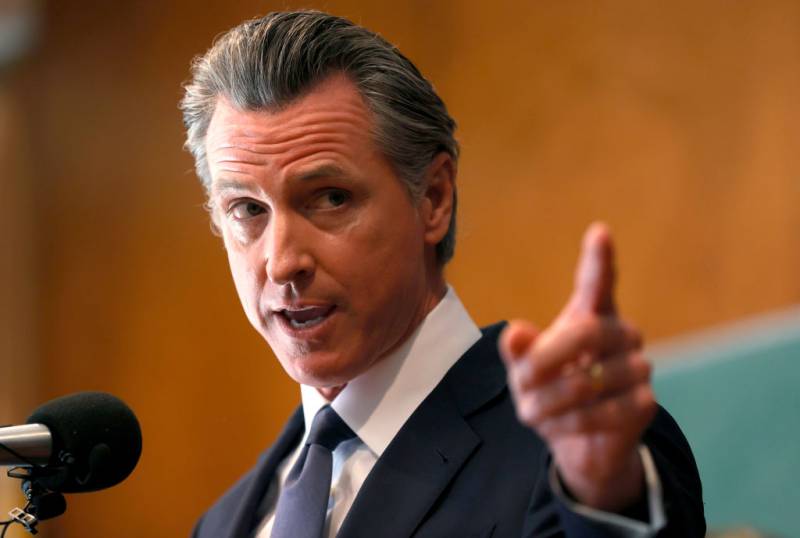Gov. Gavin Newsom on Saturday pledged to empower private citizens to enforce a ban on the manufacture and sale of assault weapons in the state, citing the same authority claimed by conservative lawmakers in Texas to outlaw most abortions once a heartbeat is detected.
California had banned the manufacture and sale of many assault-style weapons for decades. But in June a federal district judge overturned that ban, ruling it unconstitutional and drawing the ire of the state’s Democratic leaders by comparing the popular AR-15 rifle to a Swiss Army knife as “good for both home and battle.” The ban remained in place while the state appealed, and in November, a federal appeals court upheld California’s restrictions, scrapping the lower court’s ruling.
Meanwhile, Republican lawmakers in Texas this year passed a law banning abortions after a fetal heartbeat is detected, which normally occurs at about six weeks into pregnancy. The Texas law allows private citizens to enforce the ban, empowering them to sue abortion clinics and anyone else who “aids and abets” with the procedure.
On Friday, the U.S. Supreme Court allowed the Texas law to remain in effect while abortion clinics sue to block it. That decision incensed Newsom, a Democrat who supports abortion rights.

